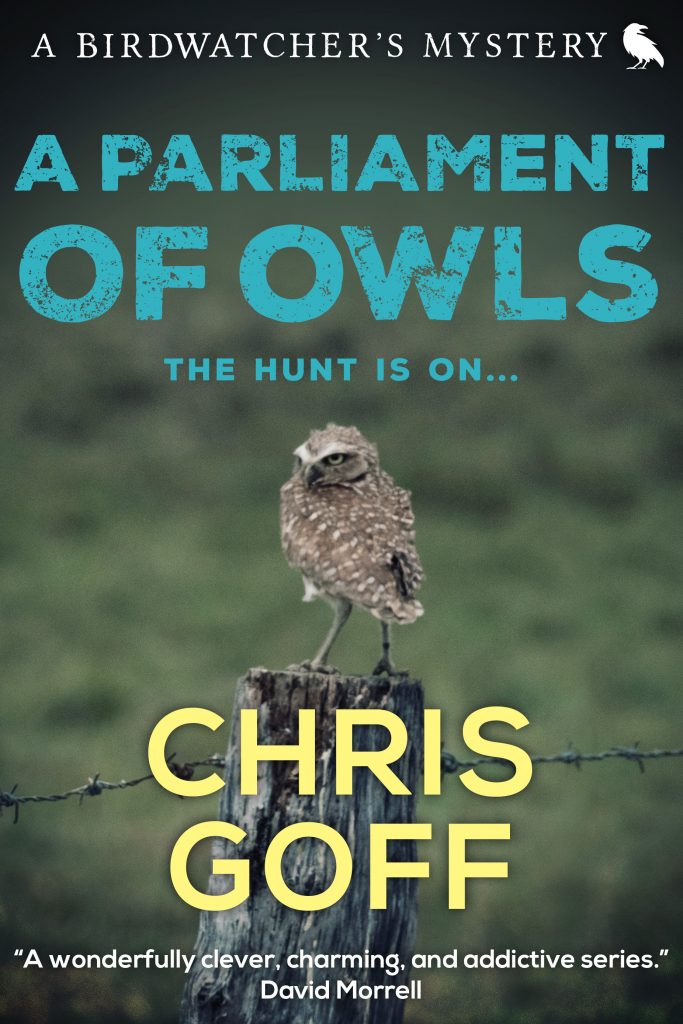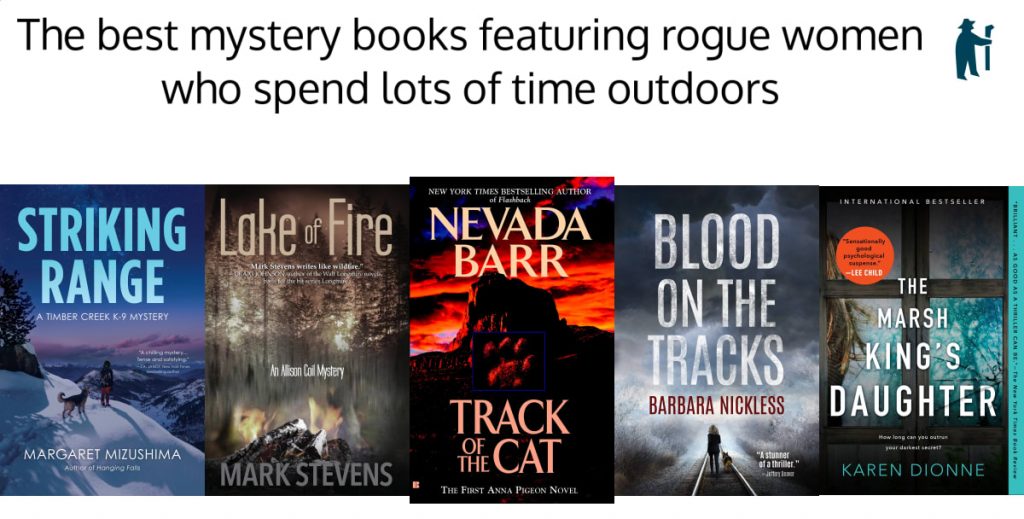By Chris Goff
I was recently asked to participate in a new promotional venture for authors: Discover the best books from Shepard for Authors. It’s a new website and the owner’s philosophy is that “when it comes to books, human recommendations are always better than algorithms.”
Hard to argue with that.
Most of the books I read come through word-of-mouth recommendations, or because an author I know has a new book coming out. In this case, authors (and some experts, like librarians) are asked to share their favorite books around themes and topics. Classifications for marketing.
The person who reached out to me, specifically asked me to promote the latest in my Birdwatcher’s Mystery series, A Parliament of Owls, and encouraged me to come up with a list of relatable books. The philosophy is: if a reader is interested in a book that’s recommended, they will also be interested in my book.
Since birdwatching is an outdoor activity and my books are populated with women constantly pushing their boundaries, I came up with “The best mystery books featuring rogue women who spend lots of time outdoors.” In hindsight, I know I rushed it. Given a little more thought, I know I could have come up with something better. (Next time! When I put together the list to promote Red Sky.)

My next task was filling out a simple questionnaire, broken into sections.
Who am I?
They weren’t looking for my author bio. They wanted something personal. 100 words that summed up how I had come to write birdwatching mysteries.
What is my book about?
Here they wanted 100 words about A Parliament of Owls. Essentially the cover copy. It was already written and designed to get readers to read the book. This was a cut and paste.
The books I picked and why.
This section was hard. First, I had to narrow the list to five books. Then I had to be sure they fit with my theme. And last I had to write, in 100 words or less, what impressed me most about each story. I felt it was important to put each work in context, and yet the key was communicating what made each book a standout. I learned a few things about how I look at stories.
The end result can by found by clicking here.
The value.
With every promotion, authors weigh the costs in time and money. In this case, there was no monetary cost involved, so the question remained, how will this help me sell books?
I harken back to the idea that it puts my book in front of readers who are a perfect match for my book. Anyone looking at my list of outdoor mysteries with women characters should also be interested in my book, right?
The theory is that showing my passion, expertise and voice through my recommendations will spark interest in me and my books. A theory that’s backed by data. Last July, an author, Lawrence Goldstone, created a list entitled The best books for white people to learn (just a little) about Black people. A famous TV host and renowned Harvard professor shared the list on Twitter and Facebook, resulting in over 7,400 unique visitors to the list in July. That month Lawrence’s book sold at a ratio of 1:1 against the other five books on the list. To put that in context—if 500 books were sold, 250 of those books were Lawrence’s book and 250 were the other five recommended books. More case studies to come.
Bottom line, as promotions go, this one was fun. I’m looking forward to creating more lists and promoting more of my work and the work of authors I admire, and I recommend other authors with list ideas visit the Shepherd for Authors website. Meanwhile, I’m enjoying browsing the lists for book recommendations. After all, one can never have too many books on their to-be-read pile!
Readers, do you have a favorite way of discovering new authors? How do you choose the next book to read?

















































That’s a good question—I run across new authors in a variety of ways. I still read the newspaper (yes, I’m one of those!) and occasionally there will be write ups on new books or author presentations. Then researching authors to invite for Rogue Reads can prompt my interest. Being a judge for annual awards is a great way to find new authors in a particular field (and get a mess o’ free books!!).
Shepherd is a fun site! I also wrote an essay for them: Five books for music lovers.
I went out and checked out your list. Funny thing — I also played the clarinet. Though I didn’t play it into my marriage, and never particularly well. I abandoned it for piano, which I also don’t play particularly well, and choir. I can sing.
What a wonderful new way to look at exposing one’s books to readers. Kudos to Shepherd, and to you, Chris, for your wonderful novels!
I’ve never heard of that site, Chris, but will definitely now check it out. I usually learn about new authors by word of mouth, reviews, or my favorite way, by walking the mystery/crime aisles of my favorite indie bookstore scoping out all the colorful book covers till my money gets itchy in my pocket.
I love that, too. Booksellers have the best recommendations.
I had never heard of that book promotion site — now I must check it out frequently. As for my finding new books to read, besides recommendations of friends of course, I have two other great sources. First, THE READERS EXCHANG – a quarterly newsletter that does fabulous reviews of fiction and non-fiction books – some new, some older ones. They rate the books and I absolutely love their comments. The other is Ty long-time subscription to PUBLISHERS WEEKLY – I scour all of their reviews too. thanks, Chris, for a very interesting post.
I take Publisher’s Weekly, too. I’ve never heard of THE READERS EXCHANGE. I’ll have to check it out.
I’m off to check it out! And I find books the same way I have since grade school: through friends. I read what they’re reading. 🤓
You and me both!